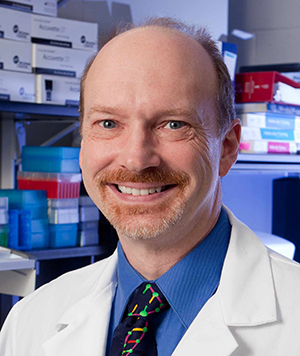How would you describe food allergy research?
Food allergy is very different than any other disease that we’ve seen. It has some shared features with a number of other diseases, but more importantly, it has its unique features. There is much about food allergies that researchers do not understand. What we definitely know is that the way the immune system regulates itself, the way it controls its reactivity or non-reactivity, is defective. Something has gone completely wrong.
There are a couple of points in an immune response where that could possibly happen and which have been the focus of our research. One step is that when you eat something, your immune system treats it like a harmful invader and reacts to it: a problem in “sensitization.”
Another step is when the immune system pathways that normally keep a response from getting too strong are missing or they are dysfunctional: a problem in immune response regulation.
What areas of food allergy are you currently investigating?
For the past 15 years, I have focused on not the microbes from outside the body, and whether they are going to cause infection, but rather the microbes that are inside the body, the microbiome, and what role they play in how our body normally functions. Those microbes include bacteria, yeast and parasites.
With food allergies, there’s data emerging that some of these bacteria and yeast play a role in whether we stop ignoring a food that we eat and now we react strongly to it. Some of these bacteria and yeast normally play a role in shutting down immune responses that are too strong or they prevent immune sensitization against our food.
We’ve been focusing more recently on the role of yeast because they are largely understudied, and also the idea that one of the places that we don’t think much about as a site where problems can start is actually the stomach, an organ where there’s a lot of interaction with the microbiome.
We have evidence that, like the gastrointestinal tract, the stomach can be a site where immune responses to food develop, which definitely changes the nature of how we look at the regulation of immune responses.
Yeast can easily tolerate the acids and low pH of the stomach, so they can live quite happily there. We all carry yeast in our bodies: Sometimes there are high levels and sometimes there are low levels. We are studying how these yeast levels affect immune responses to food.
Why are you passionate about this area of research?
Because it is unexplored and the need for knowledge is great. Food allergies are an unregulated immune response to a non-harmful stimulus: food.
Our research focuses on one aspect of how the immune system is regulated, which is by the indigenous microbes of the body.
If we can identify the various aspects of the internal microbiology that can be either turned up or turned down to help curb food allergies, then we can focus on manipulations that we already know will change the microbiology of our bodies: dietary changes, dietary supplements, antibiotics, probiotics, and fibers.

